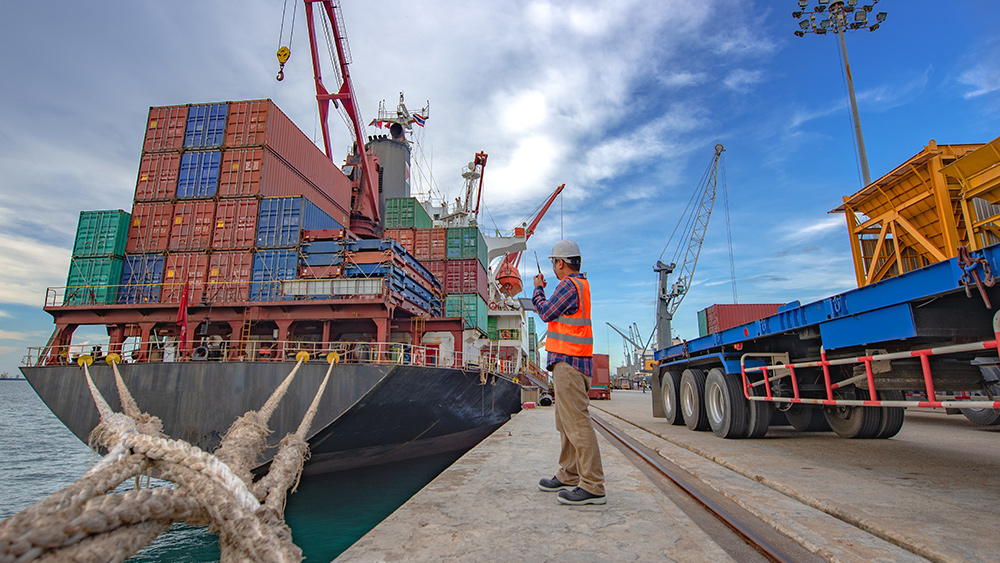by Belle Carter, Natural News:
 According to finance analysts, it has been becoming Russian President Vladimir Putin’s advantage that Houthi militants are attacking Western vessels along the Red Sea Route. A financial blogger, Swiss journalist and political commentator who goes by the name Russian Market (RM) on X pointed out that the recent provocations aimed primarily at Western vessels have the potential to reshape the dynamics of global trade.
According to finance analysts, it has been becoming Russian President Vladimir Putin’s advantage that Houthi militants are attacking Western vessels along the Red Sea Route. A financial blogger, Swiss journalist and political commentator who goes by the name Russian Market (RM) on X pointed out that the recent provocations aimed primarily at Western vessels have the potential to reshape the dynamics of global trade.
TRUTH LIVES on at https://sgtreport.tv/
He said that the route through the Red Sea is a pivotal conduit for international commerce is now a contested arena as the Yemeni rebel group has been pursuing all Israel-bound vessels due to hostilities in Gaza. The Houthis declared their support for Hamas and said they would target any ship traveling to Israel. In November they seized what they said was an Israeli cargo ship and they since have attacked several commercial vessels with drones and ballistic missiles.
Due to this, major shipping firms including Mediterranean Shipping Company, Maersk, Hapag-Lloyd and the oil company BP have all said they are diverting vessels away from the Red Sea. Shipments have been rerouted around the southern tip of Africa, which, he said, poses substantial challenges. “Not only is this alternative longer and more expensive, but it also threatens to disrupt the finely tuned supply chains that European industries depend on,” RM discussed in an article on RT. (Related: Major shipping giants HALT Red Sea route following Houthi attacks on shipping vessels.)
Meanwhile, many Russian oil tankers continue navigating the waters to deliver oil shipments to Asia. “If substantiated, this selective targeting highlights the geopolitical intricacies in play, positioning maritime trade as a pawn in broader geopolitical maneuvers,” he said. The blogger also highlighted that as Europe actively seeks alternatives to Russian oil, Moscow pivots to increase oil exports to Asia, resulting in a staggering 140 percent surge in Red Sea oil traffic, underscoring its adaptability in the face of changing dynamics. The said route is historically a key route for Western shipping and Russia’s ability to navigate and capitalize on the geopolitical landscape, coupled with the targeted nature of Houthi attacks, suggests a reordering of influence. “The West finds itself losing its grip on a critical trade route as Russia strengthens its foothold,” RM added.
He further observed that Russia has reconfigured its oil shipments through the Northern Sea Route (NSR) to China, circumventing sanctions and capitalizing on the potential for time and fuel savings. The NSR, stretching 3,500 miles along Russia’s Arctic coast, offers a faster route to China’s Rizhao port, which takes a mere 35 days — 10 days less than the traditional southern route via the Suez Canal. Russia’s motivation lies in the considerable advantages of reduced time and fuel costs, presenting an attractive alternative for its oil exports, RM added. Rosatom, overseeing the NSR, highlights that non-ice-class ships can now safely navigate the route during improved conditions in summer and autumn. This strategic shift suggests Russia is exploring using non-ice-class vessels, potentially reshaping conventional shipping practices in the Arctic.
Russia’s proactive stance is further evidenced by the expansion of its dark fleet, ensuring the continuity of oil revenues despite sanctions. Deputy Prime Minister Yuri Trutnev anticipates a record-breaking year for the NSR, with freight turnover expected to exceed 36 million tons, a ninefold increase since 2015, he said.



